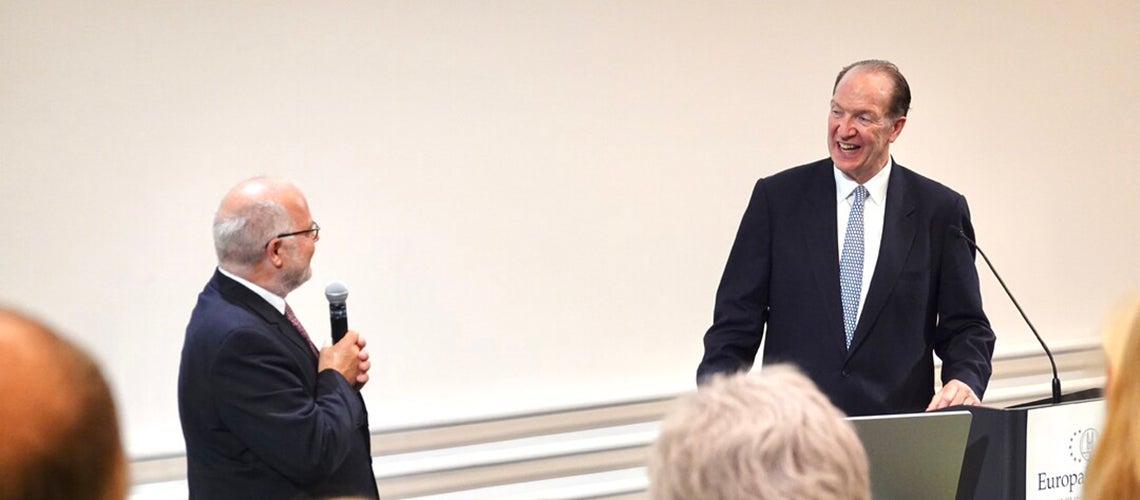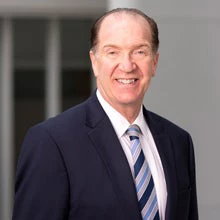 Photo credit: World Bank
Photo credit: World Bank
The below was first published on Linked-In on May 24, 2022.
After a series of productive events and meetings last week in Switzerland and Germany, I am glad to be back at work this week in Washington.
Zurich
In Zurich, I delivered a lecture on May 16 for the Churchill Symposium at the University of Zurich’s Europa Institute. It focused on the Russia-Ukraine war, energy shortages, and the need for major supply increases through fiscal, monetary, climate and debt policy changes to counter inflation, recession, capital misallocation, and deepening global conflict and inequality.
In Bern, I attended a roundtable with the Swiss financial sector focusing on the state of the global economy, investments in EMDE’s and private sector investment to achieve sustainable growth.
I was glad to meet with Swiss officials – including Federal Councillor Guy Parmelin and Swiss National Bank Chairman Thomas Jordan -- to discuss Ukraine, the global outlook, debt, food security, and update them on the WBG’s work on key priority areas.
Germany
In Berlin, I joined the G7 Development Ministers meeting to discuss support for Ukraine and developing countries.
At this meeting I joined German Development Minister Svenja Schulze to launch the “Global Alliance for Food Security” (GAFS), jointly convened by the G7 Presidency and the WBG. GAFSP will serve as the secretariat and coordinating authority for food security efforts in order to avoid duplication and the creation of new institutions, which was very well received by G7 members.
In Bonn, at the G7 Finance Ministers and Central Bank Governors (FMCBG) meeting, I highlighted the importance of providing Ukraine with net positive flows to the budget to help them cope with their financing needs -- especially over the next few months -- and the need to provide grants. I thanked G7 countries for working closely with the WBG to support Ukraine through various instruments, including the Multi Donor Trust Fund (MDTF), guarantees, and parallel financing. I highlighted the importance of increasing the supply of energy, food and fertilizers, which present a series of overlapping crises. Doing so will be key to reducing inflation and food shortages.
We discussed energy realignment challenges and the impact of the war on energy transition efforts. I also provided an update on the Bank’s work to integrate climate and development, the upcoming CCDRs, and the need for global community financing of high impact projects.
We also addressed debt vulnerabilities for LICs and the need for constructive engagement on the G20 Common Framework. The WBG and the IMF are working closely to engage countries on debt issues to strengthen the Common Framework. Debt transparency and sustainability are vital for successful development, but participation by major creditors in debt restructurings is still problematic.
Please review the G7 FMCBG communique for more information.
I also participated in the joint G7 Finance and Health Ministers meeting, which was a good opportunity to brief the group on our COVID-19 vaccine programs, deployment challenges, and the pandemic preparedness FIF which has received broad support.
From the sidelines of the G7 meetings, I was pleased to join BBC World Service’s James Coomarasamy for a wide-ranging interview, emphasizing the importance of an effective supply response to help countries address overlapping crises.
Throughout my time in Germany, I held a number of bilateral meetings with German counterparts, including Finance Minister Christian Lindner, Bundesbank President Joachim Nagel, G7/G20 Sherpa State Secretary Jörg Kukies, and Head of the Chancellery Wolfgang Schmidt.
It was also good to speak directly with all Ministers participating in the G7 meetings, and I was glad to engage members on the sidelines of the G7 Development and FMCBGs meeting on the Bank’s support to Ukraine, the G7 Presidency, and the Bank Group’s corporate priorities including FCV countries.


Join the Conversation